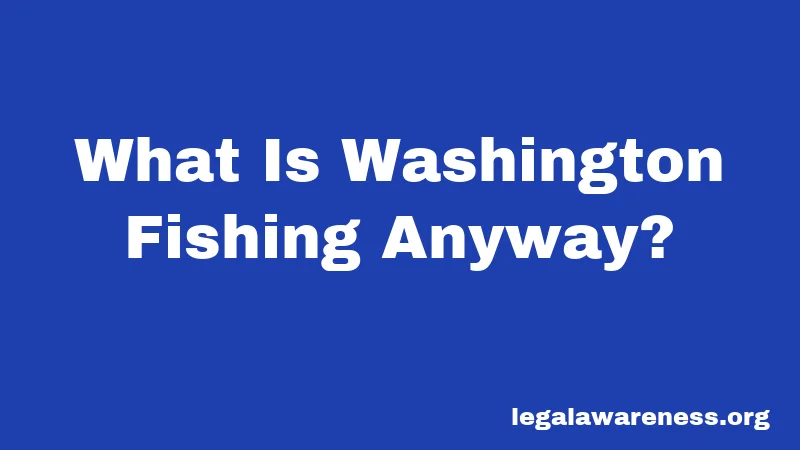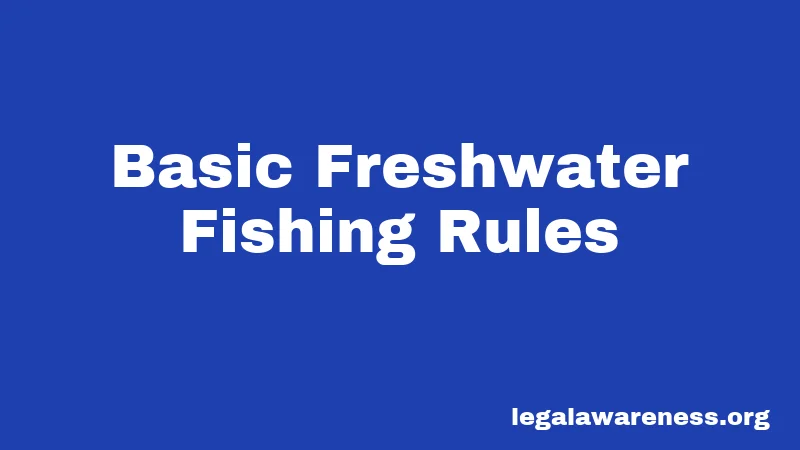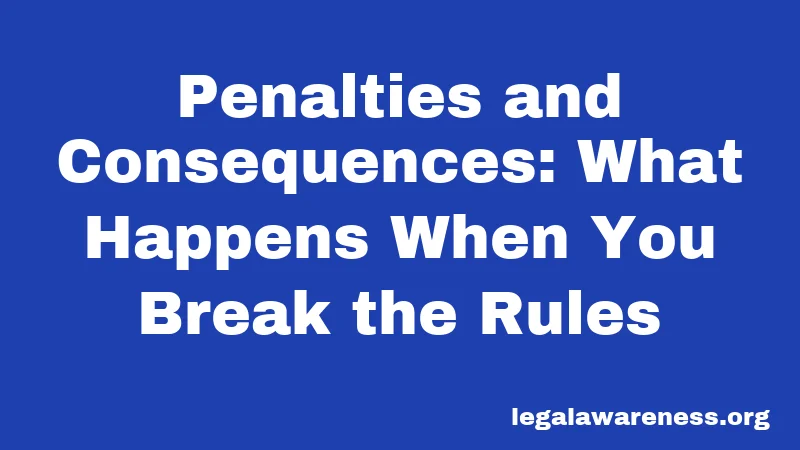Washington Fishing Laws (2026): Everything Changed This Year
Most people have no idea how much Washington’s fishing rules changed recently. Seriously. But here’s the thing—if you’re planning to fish in Washington, you need to know the basics. The penalties for breaking these laws can hit hard. Let’s break down exactly what you need to know.
Washington offers some of the best fishing opportunities in the nation. The state has everything from coastal steelhead to freshwater trout and salmon. But that incredible access comes with serious rules. Understanding these laws will keep you out of trouble and help you fish legally.
What Is Washington Fishing Anyway?

Okay, fishing sounds simple, right? You cast a line in water. But here’s where it gets interesting. Washington divides fishing into two main types: freshwater and saltwater. Freshwater means lakes, rivers, and streams. Saltwater means Puget Sound and coastal waters. Each one has different rules. Pretty straightforward so far.
The rules also change based on what you’re fishing for. Are you after salmon? Trout? Sturgeon? Each species has its own season, size limit, and daily catch limit. This might sound complicated, but it’s basically the state’s way of protecting fish populations. Think of it like speed limits on highways—they protect everyone.
Your License: The Number One Requirement
Here’s where most people mess up. You must have a valid fishing license. Period. Not optional. This applies to you if you’re 15 years old or older. If you’re under 15, you can fish without a license, but you still need a catch record card.
Wondering what counts as “fishing”? Any time you’re trying to catch fish with a rod, net, trap, or basically any method—you need your license. The state doesn’t care if you plan to keep the fish or release it. The rule is the same.
Washington just increased fishing license fees this year. A resident annual combination license now costs $62.79. Non-residents pay around $150. These prices went up 38% starting July 1, 2025. That’s a big jump, but the money supports fish management and conservation programs. Seniors aged 70 and older pay only $5. Disabled veterans with a service-connected disability fish for free.
You need your license with you at all times when fishing. Not at home. Not in your truck. In your hands or your bag. Fish and Wildlife officers can ask to see it anytime.
Basic Freshwater Fishing Rules

Understanding Size and Catch Limits
You’re probably wondering what “size limit” and “daily limit” even mean. Let me break it down.
A size limit is the minimum length of fish you can keep. For example, brown trout must be at least 8 inches. If your trout is smaller, you must release it immediately. A daily limit is how many fish you can keep in one day. Rainbow trout have a daily limit of 8, but only 1 can be over 22 inches.
Here’s the important part: when you’re fishing with bait, every fish you catch that’s the legal size counts toward your daily limit. Even if you plan to release it. This catches a lot of people by surprise.
Salmon and Steelhead Rules (The Big Ones)
Okay, pause. Read this carefully. Washington has changed its salmon and steelhead rules significantly.
For steelhead (the state fish), you must release all wild steelhead immediately. Yes, all of them. You can only keep hatchery steelhead that have a clipped fin. Coastal steelhead seasons typically run from December 1 through March 31, but check the specific rivers because some close earlier. The Chehalis River closes February 16, and the Humptulips River closes February 2.
Salmon rules are more detailed. For coho and Chinook salmon, you need both a basic fishing license AND a salmon endorsement. Starting January 1, 2026, if you’re fishing for salmon or steelhead in the Columbia River, you’ll also need a Columbia River Salmon and Steelhead Endorsement. This costs $8.75 extra and doesn’t increase as much as other fees did.
Rivers vs. Lakes: Different Rules Apply
Here’s where it gets interesting. Rivers, streams, and beaver ponds have different rules than lakes and reservoirs.
For example, in rivers and streams, you can fish for trout (where allowed) from the Saturday before Memorial Day through October 31. Lakes stay open year-round for game fish except during salmon seasons. The combined daily limit when fishing both rivers and lakes on the same day is 5 trout total. No more than 2 can come from rivers.
Don’t mix this up. Many anglers fish both water types and get the limits wrong. Check your regulations pamphlet before you go.
Advanced Fishing Rules (The Serious Stuff)
Sturgeon Fishing and Special Rules
Sturgeon fishing is seriously regulated. You probably won’t fish for sturgeon unless you know what you’re doing, but here are the key rules.
White sturgeon must be between 38 and 54 inches in fork length (that’s tip of snout to end of tail fin). Any sturgeon over 55 inches cannot be removed from water at all. Your daily limit is 1, and your annual limit is 2 per license year. Fishing is allowed only during open game fish or salmon seasons unless special rules apply.
You can only use one single-point barbless hook and bait. Eggs must stay with the fish carcass you’re fishing from. Night closure is in effect, meaning you can’t fish for sturgeon after dark. The penalties for breaking sturgeon rules are severe—fines can reach $2,000 per fish.
Green sturgeon is totally closed. You cannot fish for it. Period.
Release Requirements and Protected Species
Some fish you simply cannot keep. Bull trout and Dolly Varden must be released immediately. Endangered and threatened species cannot be targeted. This includes some salmon and steelhead populations.
Trust me, this is the part most people miss. Wild salmon (with unclipped adipose fins) are protected in many areas. You must know if the salmon season is open or closed in your area. Many closures happen to protect endangered salmon runs.
Penalties and Consequences: What Happens When You Break the Rules

Okay, this is important. Fishing violations in Washington carry real penalties.
Fishing without a license is unlawful recreational fishing in the second degree. This is a misdemeanor. You could face up to 90 days in jail and a $1,000 fine. Your fishing license gets suspended until you pay. Not exactly worth it for one day of fishing, right?
More serious violations are unlawful recreational fishing in the first degree. This includes catching twice the daily limit or more, fishing in a fishway, or possessing protected species. This is a gross misdemeanor. Penalties reach up to 364 days in jail and $5,000 in fines. If you illegally keep or kill specific fish, courts assess additional criminal wildlife penalties. White sturgeon over 55 inches? That’s a $2,000 penalty per fish on top of everything else.
Think of it like a traffic ticket, but way more serious. Equipment seizure is another consequence. Officers can confiscate your fishing gear, tackle boxes, and even your vehicle or boat. They keep this stuff as evidence.
Your license can be permanently revoked. If you get a third violation within ten years, you lose your fishing privileges permanently. You also get permanently suspended if you fish with a suspended license or show willful disregard for wildlife conservation.
Special Circumstances and Recent Changes
The 2025-2026 Coastal Steelhead Update
Most major steelhead fishing areas are open from December 1 through March 31. But wait, it gets better—WDFW just announced this year that steelhead survival rates have declined significantly. Many populations are below their target numbers. Because of this, emergency regulations change frequently throughout the season. These emergency rules can be different from what’s in the official pamphlet.
Check the WDFW website or the Fish Washington mobile app before every trip. Seriously, do this. Rivers change their open/closed status weekly sometimes.
Columbia River Requirements (Starting January 1, 2026)
Starting January 1, 2026, if you fish for salmon or steelhead in the Columbia River or its Washington tributaries, you need that Columbia River Salmon and Steelhead Endorsement. This applies to residents and non-residents, ages 15 and older. The endorsement costs $8.75 (youth and seniors get a discount). This is a new requirement that many anglers don’t know about yet. Don’t be caught unprepared.
Catch Record Cards
Every angler needs a catch record card. I mean every angler. These are different from your license. You don’t need to buy most of them—they’re free. But certain species require them. Salmon, steelhead, and some trout species require catch record cards. You write down what you catch, where you caught it, and when. WDFW uses this data to manage fish populations.
How to Stay Legal: Your Action Plan
Ready to fish without breaking the law? Here’s exactly what you need to do.
First, buy a license before you go. Visit myWDFW.org, call 360-902-2464, or visit a license dealer. Get the right license type. Need saltwater? Buy a saltwater license. Both freshwater and saltwater? Combination license is cheaper. You can purchase licenses online, but they take up to 10 days by mail. If you’re in a hurry, hit a local license dealer for instant access.
Second, download the Fish Washington mobile app. This app is incredible. It shows you current regulations, emergency rule changes, and specific season information by location. Update it before every trip. Seriously, don’t skip this step.
Third, download the official Washington Sport Fishing Rules pamphlet from WDFW’s website. This 50+ page guide has everything—season dates, species-specific rules, and special area regulations. Read the sections for where you’re fishing.
Fourth, check for emergency rules. WDFW updates emergency rules throughout the year. Visit WDFW.wa.gov/fishing/regulations and look for emergency rule changes. One river might be closed while another opens. These changes happen fast.
Fifth, get the right endorsements. Need to fish for salmon? Add a salmon endorsement. Fishing the Columbia River for salmon or steelhead starting January 1? Get that endorsement before you go.
Sixth, have everything with you. Your license, catch record cards, and current regulations should be in your tackle box. Officers can ask to see them anytime.
Saltwater Fishing Rules
Saltwater fishing in Washington is different from freshwater. You still need a license—a saltwater license, specifically. The seasons and limits vary dramatically based on location and species.
Rockfish, lingcod, and halibut have different seasons and size limits depending on which marine area you’re fishing. Some areas close while others stay open. This changes throughout the year based on fishing success.
Check WDFW’s weekly recreational fishing reports for Puget Sound and coastal areas. These reports update every week during the season. They tell you exactly which areas are open, what species are biting, and any recent closures.
Frequently Asked Questions
Do I need a license if I’m just practice casting and not actually trying to catch fish?
Technically, you need a license if you’re trying to catch fish. But if your hook isn’t in the water or you’re just learning in a parking lot, you’re fine. The moment that hook enters water where fish live, you should have your license.
Can I fish with my friend’s license?
Absolutely not. Each person needs their own license. Fishing with someone else’s license is a violation. Lending or borrowing licenses is illegal.
What if I catch a fish that’s too small? Do I have to count it toward my limit?
No. Fish smaller than the size limit don’t count. Release it immediately and keep fishing. But remember—if you’re using bait, legal-sized fish count toward your limit even if you release them.
Can I keep a fish I caught on the last day of the season?
Yes, as long as you catch it during open season, it’s legal to keep. But know your season dates because some closures happen mid-week. Check before you go.
Are there any free fishing days in Washington?
No, Washington doesn’t have free fishing days. You always need a valid license. Even kids need catch record cards, though those are free.
Final Thoughts
Washington’s fishing laws protect incredible fish populations and amazing fishing opportunities. The rules might seem complicated at first, but once you understand them, fishing is straightforward. Download the Fish Washington app. Buy your license before you go. Check the emergency rules. Have your catch record cards ready.
Now you know the basics. Stay informed, stay safe, and when in doubt, check the official WDFW website or call 360-902-2700. Their customer service team can answer specific questions about your fishing plans. Get out there and enjoy some of the best fishing in the nation—legally.
References
Washington Department of Fish & Wildlife – Fishing Regulations
Washington 2025-2026 Sport Fishing Rules Pamphlet
Fish Washington Mobile App Information
Washington Violations and Penalties
RCW 77.15.370 – Unlawful Recreational Fishing First Degree
